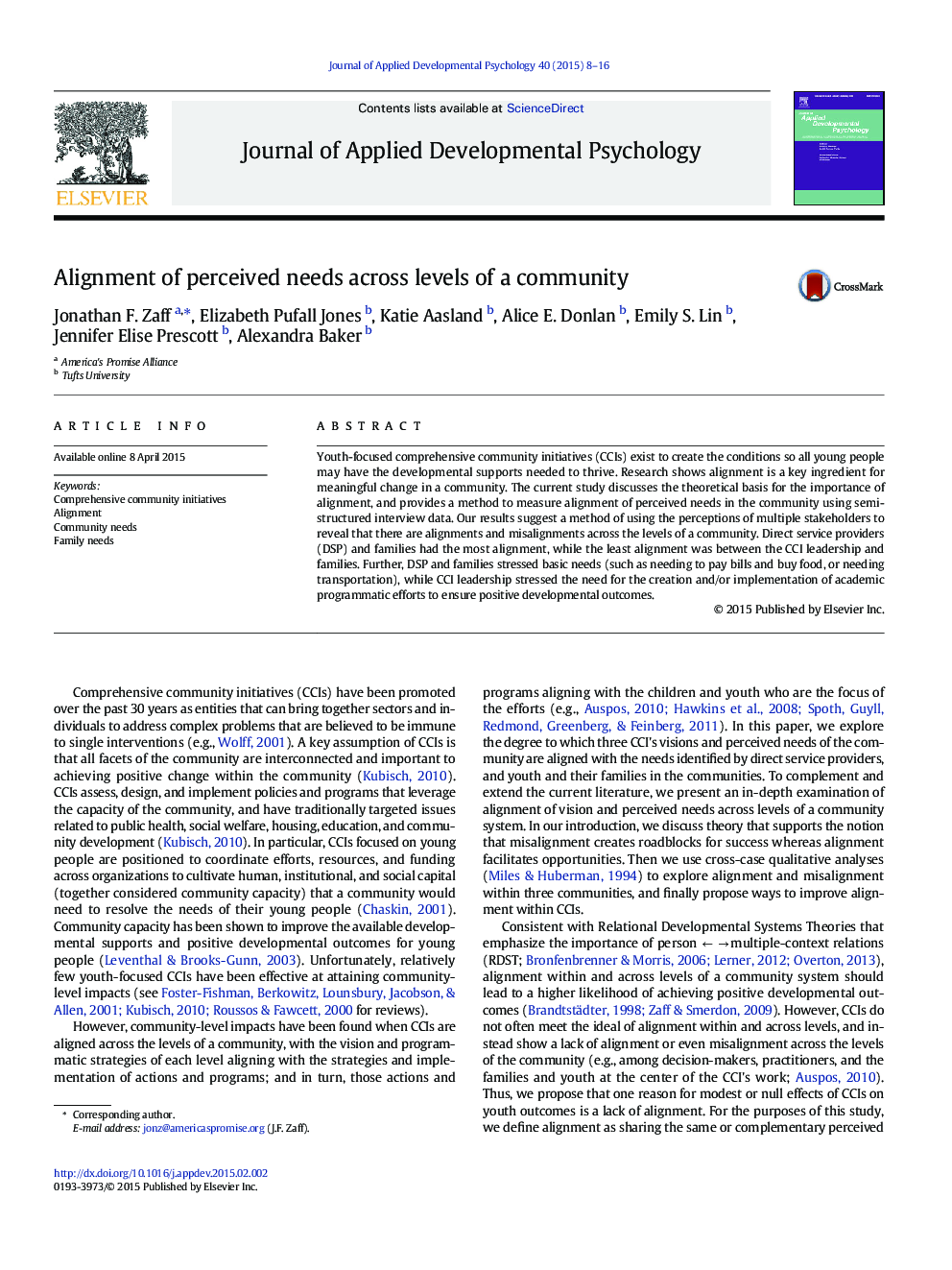| Article ID | Journal | Published Year | Pages | File Type |
|---|---|---|---|---|
| 359627 | Journal of Applied Developmental Psychology | 2015 | 9 Pages |
•Looks at alignment of perceived needs across CCI levels in three communities•Direct service providers and families had the most alignment in perceived needs.•The least alignment occurred between collaborative leadership and families.•DSPs and families stressed basic needs such as food and transportation.•Collaborative leadership stressed need for academic programs.
Youth-focused comprehensive community initiatives (CCIs) exist to create the conditions so all young people may have the developmental supports needed to thrive. Research shows alignment is a key ingredient for meaningful change in a community. The current study discusses the theoretical basis for the importance of alignment, and provides a method to measure alignment of perceived needs in the community using semi-structured interview data. Our results suggest a method of using the perceptions of multiple stakeholders to reveal that there are alignments and misalignments across the levels of a community. Direct service providers (DSP) and families had the most alignment, while the least alignment was between the CCI leadership and families. Further, DSP and families stressed basic needs (such as needing to pay bills and buy food, or needing transportation), while CCI leadership stressed the need for the creation and/or implementation of academic programmatic efforts to ensure positive developmental outcomes.
